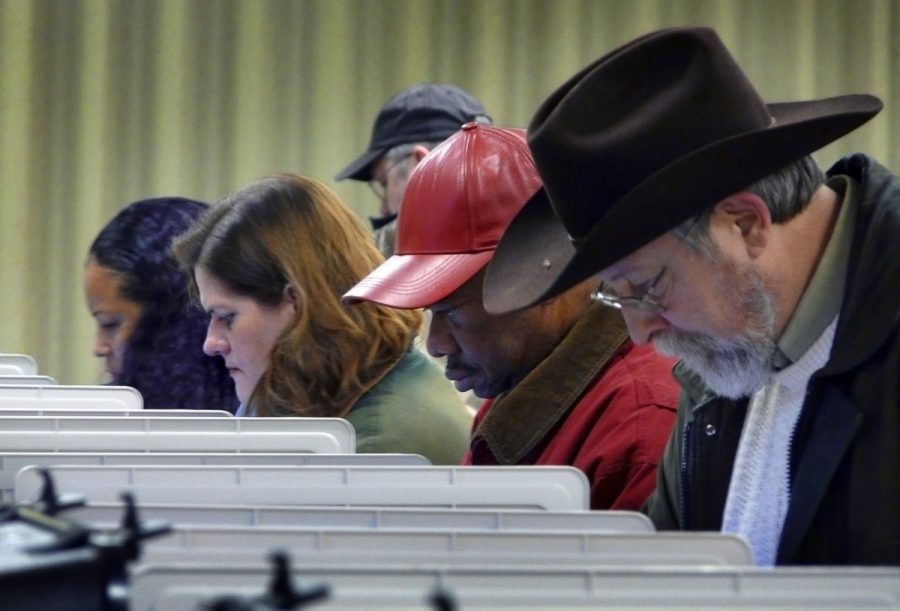Dream Act, Gay Marriage and Casino Initiative: Popular Passage of Legislation Brings Progress
Voters cast their ballots at First English Lutheran Church on Tuesday, February 12, 2008, in Baltimore, Maryland. (Karl Merton Ferron/Baltimore Sun/MCT) –Courtesy of MCT Campus
November 8, 2012

Voters took to the polls Tuesday to voice their stances on three important pieces of state legislature: Question 6, Question 7, and Question 4, better known as the Dream Act–all of which were ultimately passed.
With the passage of Question 6, same-sex couples will be able to receive civil marriage licenses starting Jan. 1, 2013. However, religious institutions will still be able to refuse services if doing so would violate the beliefs of those institutions. The Maryland Dream Act will allow children of undocumented immigrants to pay in-state tuition rates at public universities and receive state financial aid.
Question 7 is probably the most familiar ballot initiative of all three, as advertisements both in support and in opposition flooded people’s televisions these past few weeks. The passage of this measure means the authorization of expanded gambling in the state, but most people’s excitement probably comes from the end of Question 7 advertisements rather than the prospect of new casinos in Maryland.
The passage of Question 6 was one many people were anxious for, as Maryland is considered a typically Democratic state and support for same-sex marriage has been generally favorable in the last few years. After Governor Martin Oa��Malley signed his support for a same-sex marriage law last March, it seemed almost inevitable that these couples’ rights would be granted. For some voters, this measure’s approval means even more than the reelection of President Barack Obama.
The Maryland Dream Act is another big step in the granting of rights to minorities, but this time it is in the interest of students’specifically, students whose parents came to the United States illegally. The Dream Act does come with a few requirements: in order to qualify, students must have been going to a high school in Maryland for at least three years and must be able to prove their parents have paid taxes. Even so, it is predicted to help hundreds or even thousands of students.
Approval of such measures shows, for many, a step forward not only for Maryland, but for the country in general. For instance, the ability of same-sex couples to start receiving their marriage certificates this January may have an effect on whether or not the U.S. Supreme Court will take up a case challenging the constitutionality of the Defense of Marriage Act (DOMA).



